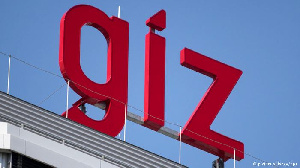To improve the performance of various governmental institutions and provide the necessary financial support, the German Government is providing more than €100 million to the District Assemblies Common Fund for inclusive development.

This forms part of the reform partnership approach between the two countries which seeks not only to provide financial support, but also technical knowhow to host countries of which Ghana is a beneficiary.
Importantly, Germany is funding the construction of Ghana Audit Service (GAS) offices across the country as well as the establishment of an Information Technology (IT) centre for Ghana Revenue Authority (GRA) aimed at better improving their performance in their respective endeavours.
Apart from this, the country is again providing a reform financing support in a form of € 40 million loan to compliment the European Union budget support.
The initiative, Governance for Inclusive Development (GoID) – a development module commissioned by the German Government to provide technical advice, training and organizational development strategies to national institutions such as the Ministry of Finance (MoF), GRA, among others – is aimed at supporting efforts to reform the country’s public financial management system.
Speaking during an operational planning workshop in collaboration with the MoF and the Ministry of Local Government and Rural Development to set goals and targets for the 2020 implementation year, the Head of Cooperation at the German Embassy, Ms. Dorothee Dinkelaker noted that Germany is recognizing the reform-orientation of the Government of Ghana and thus is supporting the efforts with both financial and technical programmes.
“We consider Germany’s support in governance as comprehensive. Financial and technical support are complimenting each other and they should go hand in hand”, she added.
BACKGROUND
The German Ministry of Economic Cooperation and Development (BMZ) has laid some emphasis on some selected reforms geared towards improving the country’s business environment for private sector activities to rise.
One important aspect of the module has been the area of governance with particular emphasis on building accountable institutions, mobilizing domestic revenue and fighting corruption
A number of German technocrats are in the country to begin implementation of the module which is expected to end in September 2022.
Source: goldstreetbusiness.com
 Home Of Ghana News Ghana News, Entertainment And More
Home Of Ghana News Ghana News, Entertainment And More






